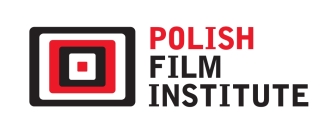Thinking through Film, or a Revision of the Romantic Paradigm
Magdalena Podsiadło-Kwiecień
magdalena.podsiadlo-kwiecien@uj.edu.plJagiellonian University (Poland)
https://orcid.org/0000-0003-3641-964X
Abstract
The article is a review of Krzysztof Kopczyński’s book Paradygmat polskiego romantyzmu w uniwersum filmowym [The Paradigm of Polish Romanticism in the World of Film] (2021). The work aims to offer an updated reading of the Polish Romantic paradigm, avoiding its reduction to patriotic and national dimensions. The author seeks inspiration in European Romanticism in order to inquire into typical issues of High Romanticism, which concern the questions of cognition, the leading role of art, individualism, the philosophy of existence, epistemology, and the philosophy of history. He then presents theoretical positions that view film art as a mode of philosophical expression, citing concepts proposed by Gilles Deleuze, Stanley Cavell, Robert Sinnerbrink, Daniel Frampton, and others. These authors become advocates of the proposition that film can be a means of reflection in a manner akin to the work of philosophers. Following this argument, Kopczyński starts from the abundance of thought contained in the Romantic paradigm’s hidden part, which allows him to penetrate the meaning of the analysed films as well as indicate that cinema can transform this pattern and changing its role in culture.
Keywords:
romantic paradigm, polish cinema, philosophy of existenceReferences
Adamczak, M. (2012). „Katyń” i „Generał Nil” a (długi) zmierzch paradygmatu. Kwartalnik Filmowy, (77-78), ss. 72-94.
Google Scholar
Bielik-Robson, A. (2008). Romantyzm, niedokończony projekt. Eseje. Kraków: Universitas.
Google Scholar
Czapliński, P. (2011). Resztki nowoczesności. Kraków: Wydawnictwo Literackie.
Google Scholar
Kopczyński, K. (2021). Polski paradygmat romantyczny w uniwersum filmowym. Kraków: Universitas.
Google Scholar
Filipiak, I. (1995). Absolutna amnezja. Poznań: Obserwator.
Google Scholar
Mrozik, A. (2012). Akuszerki transformacji. Kobiety, literatura i władza w Polsce po 1989 roku. Warszawa: Lupa Obscura.
DOI: https://doi.org/10.4000/books.iblpan.12552
Google Scholar
Rabizo-Birek, M. (2012). Romantyczni i nowocześni. Formy obecności romantyzmu w polskiej literaturze współczesnej. Rzeszów: Wydawnictwo Uniwersytetu Rzeszowskiego.
Google Scholar
Authors
Magdalena Podsiadło-Kwiecieńmagdalena.podsiadlo-kwiecien@uj.edu.pl
Jagiellonian University Poland
https://orcid.org/0000-0003-3641-964X
Graduate in Polish Philology and Film Studies at the Jagiellonian University; she works as Assistant Professor at the Department of Polish Film History of the Institute of Audiovisual Arts, Jagiellonian University. She authored the book Autobiografizm filmowy jako ślad podmiotowej egzystencji [Autobiographism in Cinema as a Trace of Individual Existence] (2013) and co-edited the volumes Kino polskie jako kino transnarodowe [Polish Cinema as a Transnational Cinema] (2017) and Przygoda kina [Cinema as Adventure] (2019). She published in the journals Kwartalnik Filmowy and Kultura i Historia, and in collective volumes.
Statistics
Abstract views: 287PDF downloads: 303
License
Copyright (c) 2022 Magdalena Podsiadło-Kwiecień

This work is licensed under a Creative Commons Attribution-NonCommercial-NoDerivatives 4.0 International License.
The author grants the publisher a royalty-free non-exclusive licence (CC BY 4.0) to use the article in Kwartalnik Filmowy, retains full copyright, and agrees to identify the work as first having been published in Kwartalnik Filmowy should it be published or used again (download licence agreement). The journal is published under the CC BY 4.0 licence. By submitting an article, the author agrees to make it available under this licence.
In issues from 105-106 (2019) to 119 (2022) all articles were published under the CC BY-NC-ND 4.0 licence. During this period the authors granted a royalty-free non-exclusive licence (CC BY-ND 4.0) to use their article in „Kwartalnik Filmowy”, retained full copyright, and agreed to identify the work as first having been published in our journal should it be published or used again.
Most read articles by the same author(s)
- Magdalena Podsiadło-Kwiecień, “Between the Years of Yore and Younger Years” – (Neo)Animistic and (Neo)Pagan Tropes in Polish Cinema , Kwartalnik Filmowy: No. 114 (2021): Contamination, Dirt, Flaw
- Magdalena Podsiadło-Kwiecień, Body/Flesh/Corporeality – the Physical Matter in Małgorzata Szumowska’s Work , Kwartalnik Filmowy: No. 111 (2020): Senses and Affects











